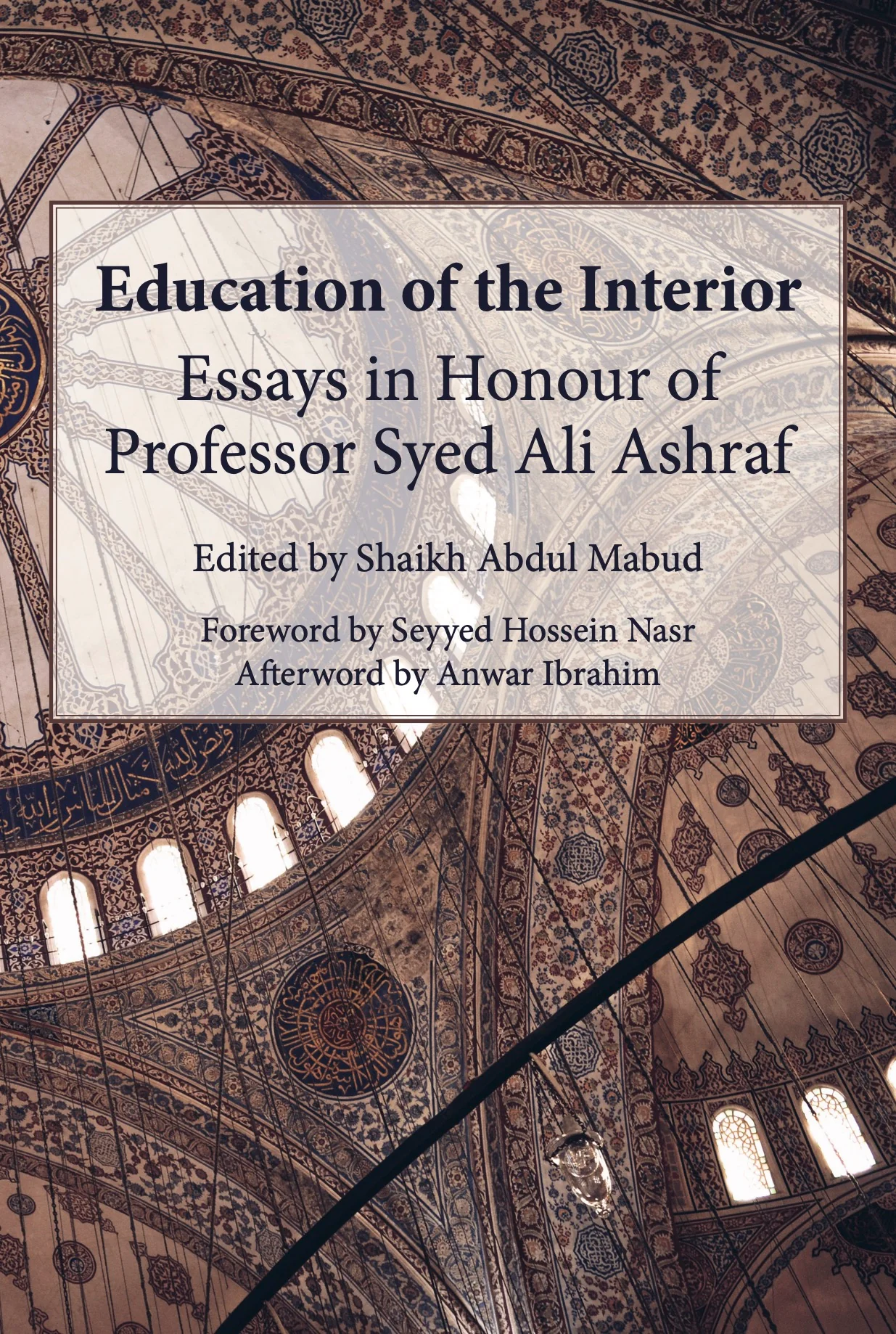
By Phar Kim Beng, PhD
Professor of ASEAN Studies, International Islamic University of Malaysia; Director, Institute of Internationalization and ASEAN Studies (IINTAS)
At a time when modern education systems are increasingly commodified, mechanized, and hollowed out by the tyranny of standardization, Education of the Interior: Essays in Honour of Professor Syed Ali Ashraf emerges as a civilizational breath of fresh air. This festschrift is more than an anthology—it is a collective reaffirmation of a deeper truth long forgotten in educational policy circles: that the true purpose of learning is not merely to feed the mind but to illuminate the heart.
Professor Syed Ali Ashraf (1924–1998), the scholar to whom this volume is devoted, was a visionary whose intellectual journey bridged Sufi ethics, Islamic metaphysics, classical English literature, and contemporary pedagogy. What made his scholarship exceptional was not only its academic rigour but its unwavering fidelity to the Qur’anic understanding of the human being as a composite of body, mind, and soul. For Ashraf, the crisis of education in the Muslim world—and, indeed, in the modern world at large—was fundamentally a crisis of interiority. We had forsaken the soul in pursuit of outward forms. In doing so, we had turned education into a factory for technocrats and functionaries, rather than a sacred process of moral cultivation and intellectual refinement.
The essays in this volume, contributed by scholars of immense stature—Seyyed Hossein Nasr, Osman Bakar, Ziauddin Sardar, and others—revive Ashraf’s conviction that education must begin with a clear understanding of ta’dib, the harmonization of knowledge with adab, or virtuous conduct. Learning, as Ashraf envisioned, was a journey inward before it became a means to external transformation. This inner journey demands a curriculum that engages not just with facts and theories, but with maqasid—the higher purposes of human existence, including justice, mercy, balance, and wisdom.
The volume does not merely recount Ashraf’s contributions to institutions like the Islamic Academy in Cambridge or his role in organizing the historic First World Conference on Muslim Education in Makkah in 1977. Rather, it draws attention to the theological and metaphysical scaffolding of his work. At the core lies the Qur’anic conception of the human being as a trustee (khalifah) of God’s creation, responsible not only for stewardship of the earth but also the refinement of the self through divine guidance. This worldview stands in stark contrast to secular educational models that prize utilitarian knowledge but neglect ontological wisdom.
One cannot help but note the intellectual synchronicity between Ashraf and other global thinkers of the twentieth century who sought to bring back a spiritually-anchored model of education—figures such as Martin Buber, Tagore, and even Confucian scholars such as Tu Wei Ming.
Yet it is in Ashraf’s insistence on tawhid—the unifying principle of divine oneness—as the foundation of knowledge that his framework acquires its distinctiveness. For him, all branches of knowledge ultimately derive from, and must return to, the Divine. This spiritual epistemology challenges the post-Enlightenment fragmentation of knowledge, calling instead for an integrated curriculum that dissolves the artificial barriers between sacred and secular, science and humanities, rationality and revelation.
Ashraf’s critique of modern education was not a nostalgic retreat into the past but a bold attempt to fuse tradition with transformation. He recognized that Muslims were being taught in systems alien to their values—systems that rewarded memorization without reflection, credentials without conscience. In the absence of inner purification and moral accountability, education becomes not a means of liberation, but a tool of domination. That insight is even more urgent today, when Artificial Intelligence, Big Data, and surveillance capitalism threaten to supplant the very idea of human agency and ethical judgment.
The book’s title, Education of the Interior, is thus both literal and symbolic. It refers not only to the soul (batin) as the locus of moral and spiritual development but also to the interiority of civilizational discourse itself—the need to resist being externally defined by colonial paradigms or global rating systems. In doing so, the essays in this volume restore Ashraf’s project as an act of intellectual decolonization. Education, after all, is not neutral; it always carries the values of the civilization that shapes it.
Prime Minister Anwar Ibrahim’s afterword to the volume adds gravitas to this reflection. A student of Ashraf’s thought, Anwar reminds readers that the purpose of education in a pluralistic world is not merely to produce competitive economies but to cultivate ethical societies. He affirms that Ashraf’s call for spiritual renewal in pedagogy is not anachronistic—it is prophetic. Especially for Muslim societies seeking to balance modernity with tradition, Ashraf offers a compelling alternative: an education system rooted in revelation, critical thinking, and moral imagination.
In an age when universities chase rankings instead of truth, and students are trained to be employable rather than enlightened, Education of the Interior is a quiet revolution. It calls upon educators, policy makers, and civil society leaders to reconstruct a paradigm in which the heart and the mind, the sacred and the rational, the inward and the outward, are in seamless harmony.
This book should not be read as an epitaph to a great man. Rather, it must be studied as a blueprint for an educational philosophy that remains unfinished but urgently necessary. Syed Ali Ashraf’s legacy lies not in the institutions he built, but in the ethical vision he left behind: that education must be an act of worship, a path to virtue, and a mirror to the Divine.
